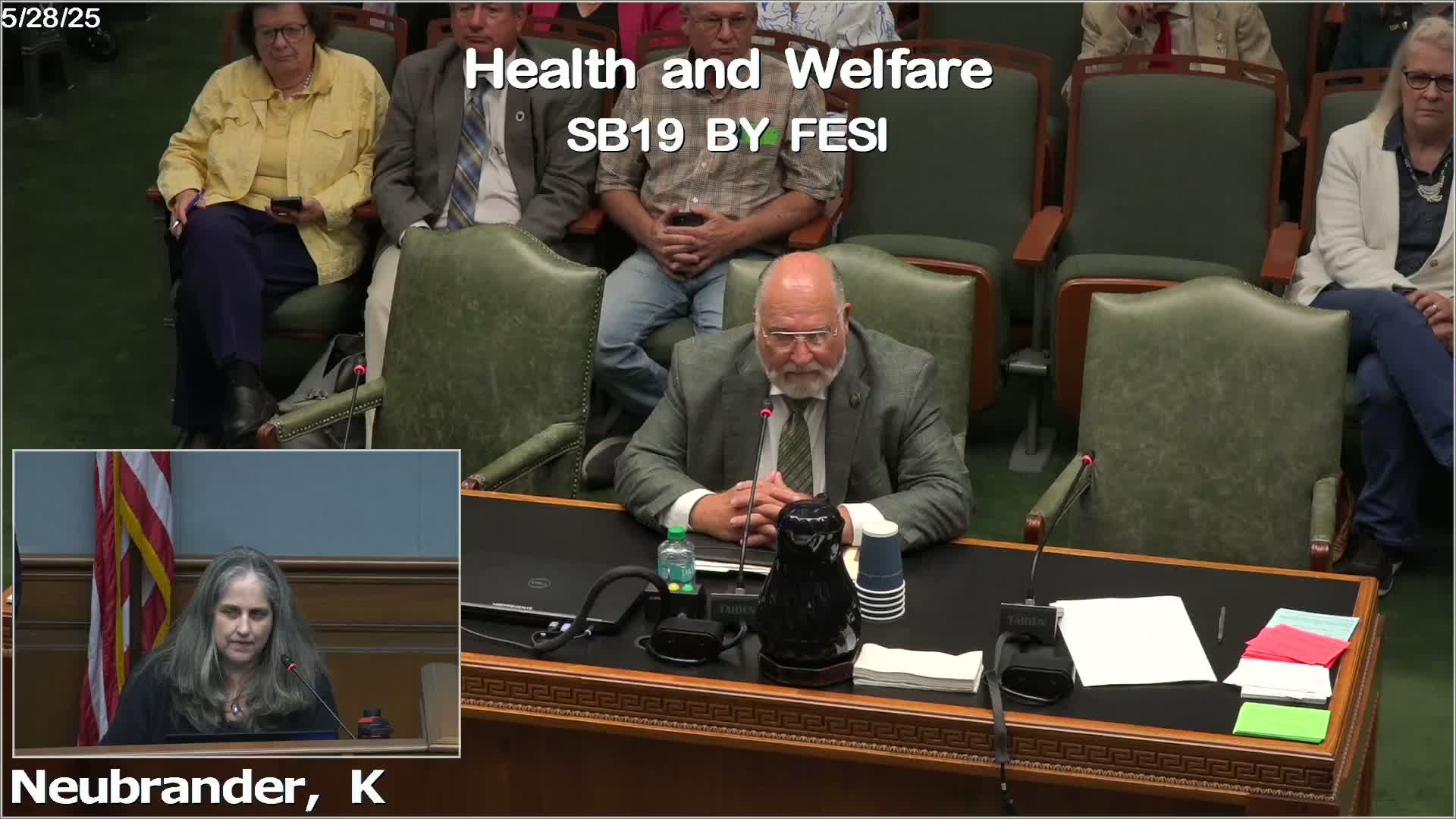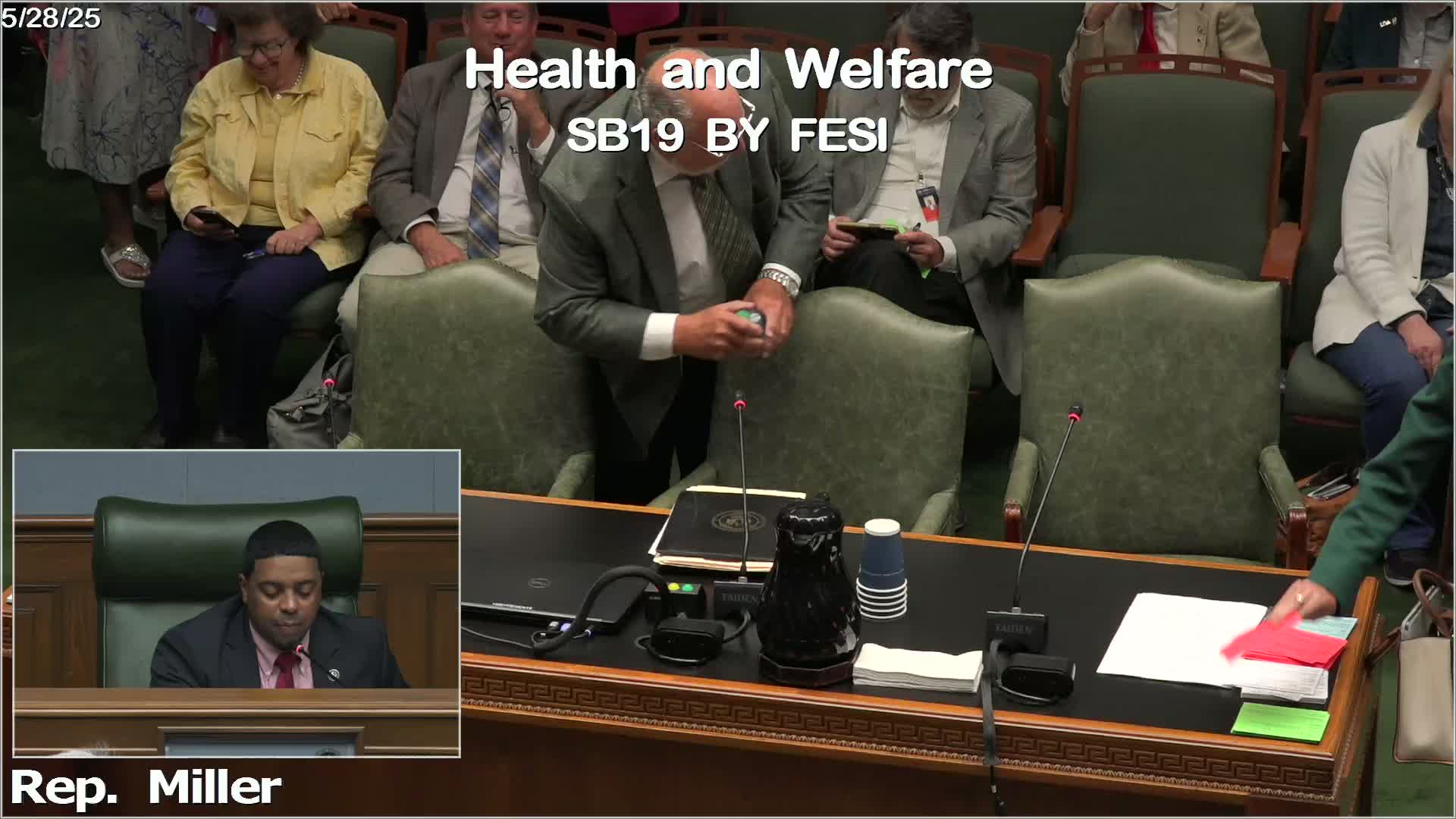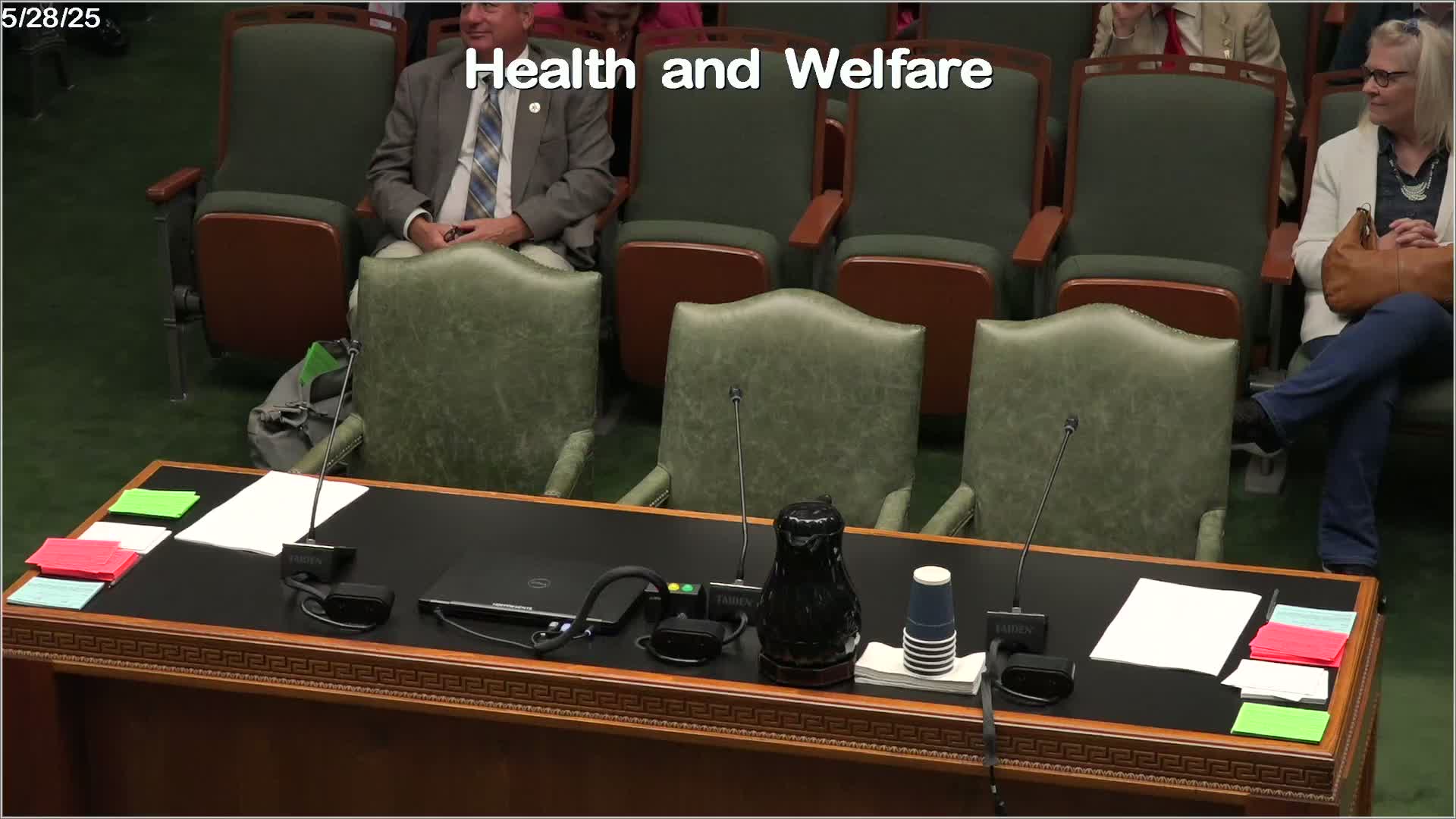Article not found
This article is no longer available. But don't worry—we've gathered other articles that discuss the same topic.

Proposal to prohibit mandatory water fluoridation draws heavy opposition; committee involuntarily defers bill

Committee advances bill allowing ivermectin dispensing under LDH standing order after amendment on prescriptive authority

